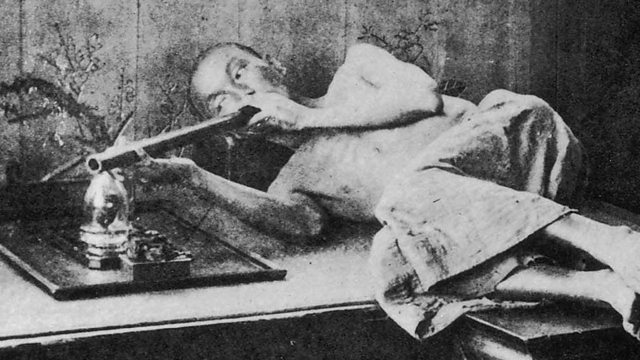Drugs
Melvyn Bragg discusses the role narcotics and stimulants have played in the history of medicine and their use as both a creative and a destructive force on the lives and work of writers and artists.
Melvyn Bragg and guests discuss the history of drugs. Throughout history people have taken them to alter their perceptions and change their moods. The attractions lie in the promise of instant pleasure and the possibility of heightened perceptions. Nietzsche said that no art could exist without intoxication and believed that a dream-like state was an essential precondition to superior vision and understanding. But artists and writers from De Quincey to Coleridge to Huxley have found drugs to be both a creative and a destructive force in their lives and work. Coleridge said in his poem about opium: Fantastic Passions! Maddening Brawl! And shame and terror over all! The world of drugs is a topsy-turvy world of ambivalence and paradox: a world of clarity and confusion; stimulation and stupefaction; medicine and poison; vitality and death.Can drugs really stimulate creativity? What is the impact of drugs on the body? And what role have narcotics and stimulants played in the history of medicine? With Richard Davenport-Hines, historian and author of The Pursuit of Oblivion: A Global History of Narcotics; Sadie Plant, author of Writing on Drugs; Mike Jay, historian and author of Emperors of Dreams, Drugs in the Nineteenth Century.
Last on
Broadcasts
- Thu 23 May 2002 09:02Βι¶ΉΤΌΕΔ Radio 4
- Thu 23 May 2002 21:30Βι¶ΉΤΌΕΔ Radio 4
Featured in...
![]()
Science—In Our Time
Scientific principles, theory, and the role of key figures in the advancement of science.
In Our Time podcasts
Download programmes from the huge In Our Time archive.
The In Our Time Listeners' Top 10
If you’re new to In Our Time, this is a good place to start.
Arts and Ideas podcast
Download the best of Radio 3's Free Thinking programme.
Podcast
-
![]()
In Our Time
Melvyn Bragg and guests discuss the ideas, people and events that have shaped our world.



